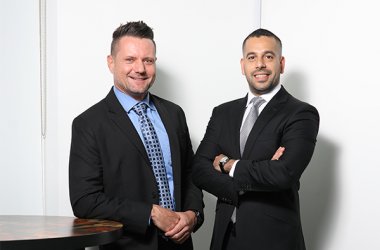
The second quarter officially ended on June 30 with technology stocks leading all others. The question is, after a strong second quarter run, where do they go from here? Some analysts predict a dip in coming months as people avoid buying new PCs, opting instead to wait until late October when they can buy computers with Microsoft’s new operating system, Windows 7.
The Nasdaq Composite Index rose 20 % in the second quarter to close at 1835.04 on June 30, beating the Dow Jones Industrial Average and the Standard & Poor’s 500 Index, which were up 11 % and 15 %, respectively. The Nasdaq is also up 16.4 % so far this year, while the Dow is down 3.8 % and S&P 500 up 1.8 %.
Most of the gains for all three indexes came in the past three months after hitting lows in early March, and some analysts say the increases are overdone considering weak economic fundamentals globally.
On Thursday in the U.S., for example, the government reported unemployment rose to 9.5 % as the economy shed 467,000 jobs in June, up from May and worse than expected. The total %age of unemployed, including those who have stopped looking for jobs due to discouragement and people marginally employed, rose to 16.5 %, according to the Bureau of Labour Statistics.
"I consider these job losses to be depression-level totals," wrote Mike Shedlock, investment advisor representative for SitkaPacific Capital Management, on his popular blog. "Admittedly conditions are not as bad as the great depression, but this is certainly no ordinary recession by any economic measure."
The pain isn’t limited to the U.S. Last week, the World Bank revised its economic forecast for the global economy, projecting it will shrink 2.9 % this year, from 1.7 % previously.
Despite the gloom, some segments of the global information technology sector continue to shine.
Several chip makers have raised their second quarter guidance recently, including Texas Instruments, Qualcomm and Marvell Technology, reflecting stronger than expected orders, mainly in wireless telecommunications.
The launch of exciting new products such as Apple’s iPhone 3GS and the latest smartphones based on Google’s Android mobile operating system, including the HTC Hero, have also helped.
But while smartphones continue to win most of the attention these days, computer makers have become nervous. And computers make up a far larger slice of the global IT market.
PC demand in the third quarter could be weak as people hold off on purchases until the formal launch of Windows 7 on Oct. 22, according to a report from securities researcher CLSA Asia Pacific Markets.
"Third quarter order visibility is still limited across the supply chain," the report says. "Corporate demand remains weak with no signs of recovery."
However, a weak third quarter could give way to strong PC sales later this year.
CLSA and investment banking firm Credit Suisse see Windows 7 as a strong operating system that will finally send Windows XP into retirement after its eight-year reign.
"We expect Windows 7 to trigger a significant PC upgrade wave as initial tests suggest that many of the issues found in Vista are resolved in Windows 7," Credit Suisse said in a report last week. "In addition, corporate PCs, which account for around 50 % of the total PC installed base, are overdue for a hardware upgrade, and we estimate that the average age of corporate PCs is over three years old."
Global economic events will continue to overshadow the technology industry, but it appears there will be some turbulence in the third quarter before the market strengthens in a fourth quarter due to the release of Windows 7
PC demand in the third quarter could be weak as people hold off on purchases until the formal launch of Windows 7 on Oct. 22





